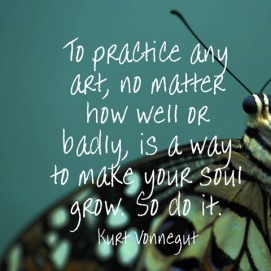new posts in all blogs
Viewing: Blog Posts Tagged with: dream healing, Most Recent at Top [Help]
Results 1 - 10 of 10
How to use this Page
You are viewing the most recent posts tagged with the words: dream healing in the JacketFlap blog reader. What is a tag? Think of a tag as a keyword or category label. Tags can both help you find posts on JacketFlap.com as well as provide an easy way for you to "remember" and classify posts for later recall. Try adding a tag yourself by clicking "Add a tag" below a post's header. Scroll down through the list of Recent Posts in the left column and click on a post title that sounds interesting. You can view all posts from a specific blog by clicking the Blog name in the right column, or you can click a 'More Posts from this Blog' link in any individual post.
By: frankramer,
on 11/19/2014
Blog:
(
Login to Add to MyJacketFlap)
JacketFlap tags:
dreams,
Uncategorized,
dream,
dream journal,
dreamwork,
healing dreams,
dream journaling,
working with dreams,
On Dreams,
benefits of remembering dreams,
Dreamwork Methods,
dream healing,
evaluating dreamwork,
lucid dream,
progress in dreamwork,
Add a tag
When my students do dreamwork (the recording and working with dreams to learn something from the dreams) on a regular basis, what I sometimes get asked is this: How do I know I am making progress in working with dreams?
This is a good question, because unless I am working with someone who knows a lot about dreamwork such as a dream mentor, the answers may not be all that apparent, especially in the beginning. However, in the long run, progress will definitely become more obvious because of the positive changes the dreamer will see in his or life.
Indicators of progress in dreamwork can be seen in the following:
- Dreams become more vivid and easier to remember. A beginner usually has difficulty remembering dreams. Just having the intention to remember dreams will often prompt the dreamer to remember his or her dreams. Need help in remembering dreams? See Tried and True Tips to Better Remember Your Dreams at http://wp.me/p45aiq-5B
- Dreams seem to “come” when one needs or wants them. Just making the intention to do regular dreamwork or participate in a dream class will often encourage the psyche to offer the dreamer a sudden outpouring of dreams.
- Discovering that dreams do respond to requests for information and wisdom with appropriate insights. Asking for a particular dream (Dream Incubation) and getting a helpful answer is truly empowering for the neophyte starting the study of dreams. It’s like meeting a powerful helper for the first time. This experience gives the dreamer confidence to ask for more help from dreams. For information on incubating a dream see Ask and You Shall Receive: Incubating a #Dream at http://wp.me/p45aiq-71
- Experiencing a lucid dream. A lucid dream is one in which the dreamer feels like he or she is awake and aware in the dream, all the while knowing it is a dream. Conscious choices can be made within the dream. One feels one can create the dream. Like dream incubation, this is an empowering to the dreamer. Lucid dreams can be also be requested for or intended in order to heal, problem solve or gain information.
- Experiencing healing, a solution or guidance in a dream or through information received in a dream.
- Discovering and evaluating what contributions dreams have made. After recording dreams for a significant period of time, one can go back and review dreams to find how they related to events and experiences in waking life during that time. This can be an eye-opening experience of discovery when one sees that many dreams do come true, show the processes and transformations one is going through in life, and support and nurture the dreamer from a deeper source.


By: frankramer,
on 10/1/2014
Blog:
(
Login to Add to MyJacketFlap)
JacketFlap tags:
disrespect of self,
dreams,
Uncategorized,
dream,
intuitive,
self-respect,
self-destructive behavior,
negative behaviors,
intuitive insight,
Intuitive insights,
working with dreams,
On Intuition,
Intuitive Methods,
On Dreams,
benefits of remembering dreams,
Dreamwork Methods,
Meditation Methods,
dream healing,
Add a tag

Where Does Self-Respect Come From?
5 Signs You’re Not Respecting Yourself by Vironika Tugaleva is a good article about the negative behaviors that can pull us down, indicating that our self-esteem is plummeting. If these behaviors become habitual patterns they can be very self-destructive and undermine our relationships with other people.
Usually these behaviors manifest because, for any number of reasons, we are not in touch with our true self, and so don’t respect who we are. Dreamwork and accessing intuitive insight are great tools that can counteract any tendency to disrespect ourselves because the on-going practice of these exercises can lead to a healthy awareness of who we truly and uniquely are at the deepest emotional and spiritual levels. These exercises tap us into the root of our being and nourish us with information that gives the bigger picture, the grander vision and the substance of things. They can also give us specific answers to problems and concerns we may have. Instead of being buffeted around by the questionable and often enslaving pressures and opinions of those around us, we are fed by healing truths that are custom made for each of us in a way that meets the problem at hand while preserving our innate goodness and integrity. The end result is that we can behave in a manner that is worthy of respect, both from others and from ourselves!
Example: When I start to feel jealous of someone’s life, thinking it is better than mine, I can ask for a dream will give me guidance on how I can get more out of my own life, being very specific in the questioning to indicate what makes me jealous of someone else and what I might need to fulfill my own life. Asking for a dream to help resolve an issue is called incubating a dream (Ask and You Shall Receive: Incubating a Dream), and it can become one way to work through an issue.
The same can be done by an intuitive meditation such as the Inspired Heart™ Meditation. Prior to doing the meditation I can ask for insight to come. During the meditation I observe the breath and quiet the mind. I then make a heart connection, and receive the insight that comes.
No matter if I work with a dream or in a meditation, the occasion may become a turning point in my life that encourages me to face my feelings, and work towards resolving my issues based on information I have received from a profound inner source and not someone’s opinion or outside pressure. With regular practice I will find that such empowerment will lead to a healthy self-respect. I will come to experience that I am a Child of God, fed and cared for by divine sources, and placed on this earth for an important purpose that only I can serve. What better basis for self-respect can there be?


By: frankramer,
on 10/1/2014
Blog:
(
Login to Add to MyJacketFlap)
JacketFlap tags:
dreams,
Uncategorized,
dream,
intuitive,
self-respect,
self-destructive behavior,
negative behaviors,
intuitive insight,
Intuitive insights,
working with dreams,
On Intuition,
Intuitive Methods,
On Dreams,
benefits of remembering dreams,
Dreamwork Methods,
Meditation Methods,
dream healing,
disrespect of self,
Add a tag

Where Does Self-Respect Come From?
5 Signs You’re Not Respecting Yourself by Vironika Tugaleva is a good article about the negative behaviors that can pull us down, indicating that our self-esteem is plummeting. If these behaviors become habitual patterns they can be very self-destructive and undermine our relationships with other people.
Usually these behaviors manifest because, for any number of reasons, we are not in touch with our true self, and so don’t respect who we are. Dreamwork and accessing intuitive insight are great tools that can counteract any tendency to disrespect ourselves because the on-going practice of these exercises can lead to a healthy awareness of who we truly and uniquely are at the deepest emotional and spiritual levels. These exercises tap us into the root of our being and nourish us with information that gives the bigger picture, the grander vision and the substance of things. They can also give us specific answers to problems and concerns we may have. Instead of being buffeted around by the questionable and often enslaving pressures and opinions of those around us, we are fed by healing truths that are custom made for each of us in a way that meets the problem at hand while preserving our innate goodness and integrity. The end result is that we can behave in a manner that is worthy of respect, both from others and from ourselves!
Example: When I start to feel jealous of someone’s life, thinking it is better than mine, I can ask for a dream will give me guidance on how I can get more out of my own life, being very specific in the questioning to indicate what makes me jealous of someone else and what I might need to fulfill my own life. Asking for a dream to help resolve an issue is called incubating a dream (Ask and You Shall Receive: Incubating a Dream), and it can become one way to work through an issue.
The same can be done by an intuitive meditation such as the Inspired Heart™ Meditation. Prior to doing the meditation I can ask for insight to come. During the meditation I observe the breath and quiet the mind. I then make a heart connection, and receive the insight that comes.
No matter if I work with a dream or in a meditation, the occasion may become a turning point in my life that encourages me to face my feelings, and work towards resolving my issues based on information I have received from a profound inner source and not someone’s opinion or outside pressure. With regular practice I will find that such empowerment will lead to a healthy self-respect. I will come to experience that I am a Child of God, fed and cared for by divine sources, and placed on this earth for an important purpose that only I can serve. What better basis for self-respect can there be?


By: frankramer,
on 9/17/2014
Blog:
(
Login to Add to MyJacketFlap)
JacketFlap tags:
dreams,
Uncategorized,
Henry Reed,
the dreamer,
Edgar Cayce,
dreamwork,
working with dreams,
On Dreams,
Dreamwork Methods,
dream healing,
intuitive healing,
dream incubation,
dream experts,
helping another,
Add a tag

Dreaming for Another
It is often said by dream experts that the dream is all about the dreamer so when we work with a dream we use methods that help the dreamer see each part of the dream as being a part of herself or himself. When this is done and the dream is worked through, the dreamer receives gifts of insight, solution and healing. If I can help myself through my dreams, can I use them to help other people—even though they are about me?
The answer is a definite “Yes!” In fact, studies done by Henry Reed, Ph.D. of the Edgar Cayce Institute for Intuitive Studies have shown that dreams are very effective when they are intended to help another person. Dr. Reed has even demonstrated in The Dream Helper Ceremony that a group of dreamers can intend to have a dream that will help a member of their group—and can even do so without that member even conveying the nature of his or her issue! The group of dreamers report dreams that can give more helpful information, often diagnose the issue, or possibly provide a solution for the member seeking help. These dreams also, at the same time, offer an important message solely for the person who dreamed the dream. On doing this exercise in my dream classes I found the same results among the class participants.
Why? It seems that empathy is at work here on the part of the dreamer. The intuitive dreaming mind is naturally, and all along, creating problem-solving solutions for the dreamer. This is its nature. In order to keep helping the dreamer and to answer the request to help another, the dreaming mind apparently creatively comes up with a dream scenario that will match the needs of both the dreamer and person being dreamed for. The dreaming mind thus intuits both the needs of the dreamer and the person being dreamed for! So, don’t be shy. Ask for a dream (Dream Incubation) that will not only help you with an issue but will help someone you know who has a problem.


By: frankramer,
on 8/27/2014
Blog:
(
Login to Add to MyJacketFlap)
JacketFlap tags:
dreams,
Uncategorized,
dream,
Healing,
health information,
dream journal,
healing dreams,
dream journaling,
working with dreams,
On Dreams,
benefits of remembering dreams,
Dreamwork Methods,
dream healing,
asclepion,
Asclepius,
health benefits of dream journaling,
caduceus,
Rod of Asclepius,
Add a tag

Caduceus: The Healing Rod of Asclepius
With nearly 40 years of dreamwork experience, one thing I can say for certain about my dreams is that the archetypal energy of healing at all levels, spiritual, psychological and physical has been expressed in myriad symbols, processes and themes, indicating to me that the primary purpose of dreams is to heal and make whole.
The Benefits of Working with Dreams to Heal
Learning to recognize when and how healing is at work within is a fascinating aspect of the study of dreams. It was one of the first benefits I clearly saw from keeping a dream journal. (See my blog 6 Health Related Benefits of Keeping a #Dream Journal.) As I grew more adept at working with dreams, I learned that they could be used to diagnose, treat and monitor the progress of any kind of ailment. Over the years, I learned to request information about a piece of health information prior to getting the specific lab results to verify the accuracy of that test. I have found my dreams to be up to this point in time 100% accurate and I have been doing this for more than ten years. And last but not least, I saw healings take place within my dreams which then manifested in my body.
How to Become Adept at Working with Health-Related Dreams
If you want to become adept at exploring your health from the dream perspective, do the following:
- Keep a dream journal and be faithful in recording all the dreams you can remember, even the most minor and insignificant. Many years ago I had an obscure “one-liner” dream which conveyed the cryptic message, “Everyone is working to develop a method of self-healing.” I knew nothing of what this meant at the time but many years later, I saw it would become one the main purposes of my life, and “everyone” referred to all aspects of me!
- Read the groundbreaking book by Patricia Garfield, Ph.D., The Healing Power of Dreams, which gives researched information on how symbols occurring in dreams relate to the body and its state of health. She gives many of the commonly occurring symbols for health in dreams.
- In addition the to common symbols for health and healing; learn your personal dream vocabulary. (See Recognizing Your Personal Dream Vocabulary.) What are your unique symbols for health, healing and healers that appear in your dreams?
- Notice and reflect on all images, processes and symbols relating to health, the medical field, therapists and healers. What are they telling you?
- Learn to request specific health information from dreams (Dream Incubation.) (See Ask and You Shall Receive: Incubating a #Dream.) For example, ask what particular foods do you need to eat to get healthier?
- Request healings to come in dreams.
- Test your dream findings with your medical lab tests or a doctor’s diagnosis. If your dream tells you one thing, and a doctor another, get a second opinion.
Many doctors now are beginning to see the helpfulness of dreams in staying healthy. My doctor always takes my health dreams seriously and so should yours! Hippocrates, the father of modern medicine, is said to have learned about the value of dreams and their relationship to health at an asclepion, an ancient type of hospital which was dedicated to the god of healing, Asclepius. The caduceus, the symbol of medicine which comes to us from this ancient era, depicts snakes wrapped around the rod of Asclepius.


By: frankramer,
on 8/7/2014
Blog:
(
Login to Add to MyJacketFlap)
JacketFlap tags:
child in dreams,
dream language,
inner child in dreams,
wounded child,
Uncategorized,
dream,
inner child,
dreamwork,
healing dreams,
On Dreams,
Dreamwork Methods,
dream healing,
Add a tag

Dr. Gwen Plano
I am pleased to have as a guest blogger my friend and colleague Dr. Gwen Plano. A retired educator with a strong background in Counseling and Theology, Gwen recently published a riveting account of her own spiritual journey in Letting Go into Perfect Love.
I grew up on a small farm in southern California, surrounded by cotton fields and grazing cattle. We were isolated from much of the world; but, the arid landscape was fertile ground for dreams. Once tucked into bed and sound asleep, I traveled–to far off lands. I knew I would someday leave the farm; because, I saw that it would be so–through my dreams.
When I got married, though, my nighttime reveries of soaring high into the clouds and traveling to one continent after another, changed. In fact, my dreams terrified me so much that I did not want to sleep. I would awaken with heart pounding, terror gripping—to images of a baby dying in my stalled car. I would frantically try to revive the child and then rouse fearfully from my bed. Visions of a shriveled, lifeless toddler haunted me night after night. And in each episode, I was desperately trying to save the child. I did not know what these dreams meant at the time; but, I worried about my children. Were the dreams about one of them?
Two years ago I began writing my memoir, Letting Go into Perfect Love. In preparation, I re-read my old journals and walked through the years. I had forgotten about my night terrors until seeing them chronicled in my notes. What had perplexed me in years past was now very clear.
For more than two decades I was in an abusive marriage. I lived afraid of mistakes, of saying the wrong thing, of being me. Joy was transient or not at all. I effectively hid from life, behind a closeted door of shame.
My dreams during this unwholesome marriage were about me, and more specifically, my lifeless inner child.
Through repetitive dreams, my subconscious was trying to get my attention. But, I could not hear its speech; because, my intuitive creative child lay lifeless in my nocturnal arms. With time and much counseling, though, this precious part of me revived and through her playful interjections, she helped me piece together a life that is once again mine.
My Reflection on Gwen’s Dream
With horrific dreams my experience has been that we tend to want to find the meaning outside of ourselves, or take them to be literally true as you did when the dream made you worry about your children. That is why as a starter to working on most dreams, I often like to use the classic dreamwork method taught by Fritz Perls that everything in the dream is part of yourself. It is the quickest and one of the most effective ways of getting to the primary message. I also believe, along with Edgar Cayce, that dreams can have many levels of meanings so the dream could have been making a comment on possible concerns you had for your children at that time, too. If it was my dream and I had kids, I think that would be the case for me.


By: frankramer,
on 7/30/2014
Blog:
(
Login to Add to MyJacketFlap)
JacketFlap tags:
dream healing,
dreams,
Uncategorized,
Healing,
creative,
intuition,
dreamwork,
healing dreams,
working with dreams,
On Dreams,
Dreamwork Methods,
Add a tag

A Pick from the Healing Dream Garden
After working with dreams for nearly forty years, I know that even the worst nightmares contain a kernel of hope or healing. The following nightmare took me a long time to understand. I had several repeats until it finally “hit” me what this dream offered as its healing insight. The dream took a while to sink in perhaps because it chose as the motif of one of my greatest fears: hitting a person while driving. To make things worse, in the dream the feeling of hitting a person was so realistic—as if it really did happen.
Dream
I am driving very slowly because I sense some danger. Then, a group of kids surges in from the left. I see a young boy of 4 or 5 years old either fall or lunge into the left front of my car. Although I slam on the breaks, I hear the thud of something hitting my car. A shock wave of raw realization explodes from my chest as the force of emergency breaking flips the car on its side, throwing me on to the ground.
Stunned, I jump up and grab the child my car struck, looking for injuries. He has a little welt on the right side of his forehead, but otherwise seems well. A huge sigh of relief surges through me and I embrace him in my arms. I see his mother, the other kids and his father at a distance. Oddly enough, they just look at me and smile. They do not seem to be worried so much about the child as about me. Somehow, I know that they won’t take this matter to the police.
On waking the first impulse was huge relief from the realization that this was just a dream! Then, the fear arose that this might be an event which will happen in the future because so many of my dreams, especially the realistic ones, often manifest in the material world just as I dreamed them. I reviewed the dream, looking for clues to indicate this wasn’t such a prophetic dream. While the dream was extremely realistic, especially the feeling I had when hitting the child, there were elements that seemed symbolic. For example, I noticed that in the dream my car was red. I don’t own a red car and probably wouldn’t buy one since I find the color too intense to look at for long periods of time. So I decided that this dream wasn’t prophetic of actually hitting a real child and left the dream alone.
For a long while, and after several repetitive dreams which clearly were begging for attention, I finally summoned the courage to look at this dream. I chose to use the dreamwork paradigm of everything in the dream as being a part of myself. The young boy in the dream, because he was male, represented something work related, and because he was young, represented creative potential that was still developing. The age of the boy indicated a work related project that has gone on 4 or 5 years. I thought of my creative and meaningful work in teaching dreams which had gone on for about 4 or 5 years. A sinking feeling in me told me I was hitting on the correct interpretation. At the time, I indeed felt like this child of my creative labors had taken a hit, not by anything deliberate on my part but just because of the choices I felt compelled to make as I tried to earn a living. Each time I had this dream of hitting a child, I was considering putting my major efforts and energy into taking a well-paying but less than desirable job that would meet my financial needs. However, in doing so, I would endanger the growth of this child. The guilt, grief, and horror were rising to consciousness. Fortunately, the kid’s parents, perhaps representing my higher self, were telling me not worry. They understood. Indeed, when reflecting on this dream while still in bed, a voice from my intuition said in a gentle but informative way, “Don’t make a big deal of this!” Just getting this message provided an odd counter balance to the guilt, grief and horror.
While the child took a minor hit, it was OK. After I felt the child was safe and comforted, I wondered how I would upturn my car to get on my way again. Now, the real problem was how to get back on track after such a near disaster.
Since then, I noticed that every time I considered taking a paying job rather than taking the financial risk of continuing to do the creative but less financially reliable work of writing, teaching and life coaching, this dream of either hitting or nearly hitting a child would repeat itself. My dreams were telling to trust more and continue to nourish and not endanger the creativity within me. Later, as if to confirm my interpretation, I dreamed of three children telling me they want to take me some place I considered special. It gave me hope and made me realize that failing to nurture my creative endeavors would be as traumatic as hitting a child.


By: frankramer,
on 7/23/2014
Blog:
(
Login to Add to MyJacketFlap)
JacketFlap tags:
dreams,
Uncategorized,
dream,
healing dreams,
working with dreams,
On Dreams,
Dreamwork Methods,
dream healing,
the Healing Dream Garden,
Add a tag

A Pick from the Healing Dream Garden
Background:
Several years ago, after taking a five-year hiatus from full-time work, I felt I was ready to return to work. Going back to work later in life is not easy, but in my case I have been blessed with terrific energy, motivation and good health and so I wasn’t worried about that.
At this stage, however, I was not ready to grab the first thing that came along. Obviously after 37 years of working, there are many jobs that have the “been there and done that” or “at my age, I don’t need to do that…” feel to them. Hopefully, over the years I have learned to work smarter and could apply any experience I’ve gleaned by choosing, getting and keeping a suitable job. When I applied for several significant jobs, I was well received in job interviews and knew I could eventually land the one I best suited for me.
My psyche must have been preparing me for this event because I had some powerful dreams which seemed to be work related, expressing my anxieties about what to do, being up to working full-time again and the effects of my efforts to go back to work but some were telling me that the prospect of working would not be a problem. Here is one of them.
Dream:
I own a large house (not the actual one I was living in at the time of the dream.) A young, healthy worker comes in the house and says he wants a room to live in. I say OK, and tell him he can take the right front bedroom. Before I know it, there are two other young, strapping men just like him who are living in the room. I go over to investigate and find the number of workers has jumped to about 20. It was really a full house—full of all the workers. I tell one man to write down their names so I can keep track of them. He does. I notice that the room has suddenly expanded to look like the inside of factory. Something in me wonders if this is really still my house?
Reflecting on this dream using the dreamwork method that everything in the dream represents a part of myself, I could see that the house was my psychic home, and that the men (who usually in my dreams represent work-related issues) were energetic, healthy and ready to work. They just needed a place to stay. I found the dream comforting, letting me know I had the energy of much ready “manpower.” But something in me asked, “Is this really me? Do I want all these men here? Is this my responsibility?” The dream raised more questions than answered them but I knew I was capable of working. The real issue might be found in limiting the amount of work I take on. The dream gave me confidence.


By: frankramer,
on 6/27/2014
Blog:
(
Login to Add to MyJacketFlap)
JacketFlap tags:
Edgar Cayce,
intuitive insight,
dreamwork,
On Dreams,
Dreamwork Methods,
dream healing,
aesclepion,
Aesclepius,
asclepion,
Asclepius,
dream incubation,
healing in dreams,
incubating a dream,
dreams,
Uncategorized,
Henry Reed,
Add a tag

Relief from an Asclepion Temple
Instead of just hoping you will get an inspiring or helpful dream, you proactively intend that what you need will come to you. It may come in the form of metaphor or story or a direct answer that is easily understandable. Early historical references to this kind of dream can be seen in the dream healing practices of the
asclepions of ancient Greece and elsewhere in the Mediterranean. These temples to the healing god Asclepius were forerunners of our modern hospitals in that people went there to eat healthy food, exercise and be treated for diseases and conditions diagnosed through dreams.
Henry Reed, Ph.D., of the Edgar Cayce Institute for Intuitive Studies developed a detailed, methodically and scientifically researched explanation for incubating dreams which can be found at: http://www.henryreed.com/incubation.pdf. Please check it out for an in-depth understanding of incubating a dream.
Basic Instructions for Incubating a Dream
A shorter version of the dream incubation instructions would include doing the following:
- On the evening before you want to have the dream, carefully think about the issue or concern for which you want inspiration or resolution. The more energy and thought you put into this helps with the outcome you will get. It should be something that is of genuine concern either to you or somebody else.
- You may want to light a candle or do a little ritual to add significance to the occasion.
- Write down the issue and the question. Pose a question that is as specific as possible in getting the information or assistance you want.
Example of Concern:
I haven’t had an eye exam in a long time. I am worried because my eyes aren’t quite as sharp as they were before. Do I have an eye problem? I hope I’m not going blind. (Be aware of your feelings abou the issue such as fear. This will add a sense of importance and intensity which, based on my experience, helps for a better outcome.)
- You may want to write down the question and put it under your pillow.
- Just before you drop off to sleep tell yourself again (or pray if that is normal for you) that you want a dream which will give insight, an answer or a resolution to your question.
- Some people have more than one dream during any given night. Take note of the very first dream you get. That is the dream that is the response to your request.
- Before moving and while still in bed, review the dream sequence and give the dream a title. Then note every image, object, person, sound, etc. in the dream.
- On rising or while still in bed, write down the dream in detail in the present tense and give the dream a title.
Example of Dream:
House with Dirty Windows
I am walking around my yard looking at my house. I am pleased to see that it is in pretty good shape. There are no major problems. I do notice, however, the panes in the windows have a film on them. I take a closer look and see that the glass itself is OK. It has not corroded or been scratched. The windows just need cleaning.
- Reflect on the dream in general by making associations. What do the images in the dream remind me of in my life? When I see the house in my dream, it reminds of my body. For the most part, it’s in good shape, but the windows need cleaning.
- Reflect on each association: What do the dirty windows remind me of? My eyes! Windows let light into the house just like my eyes let light into my brain. My dream indicates there is a problem but it can be fixed. Since the windows are basically OK, my eyes are probably also OK. Maybe my eyes just need “cleaning.” Maybe I’m getting cataracts and need to have them removed.
- Act on the dream. Go check the windows of my house. Maybe they are dirty! Dreams have a way of making comments at various levels of meaning. Go see a doctor about my eyes with the confident feeling that whatever my issue is, it can be fixed. Most likely my eyes are basically OK.
Remember that any advice you get in dreams is not a substitute for seeing a professional like a doctor, mechanic, lawyer, etc! With serious issues, it helps to get both inner advice and advice from experts! You will want to touch all the bases and go with what works for you.


By: frankramer,
on 4/29/2014
Blog:
(
Login to Add to MyJacketFlap)
JacketFlap tags:
dreamwork,
dream journaling,
On Dreams,
Dreamwork Methods,
dream healing,
keeping a dream journal,
dreams,
Uncategorized,
dream,
Edgar Cayce,
Add a tag

Landscape with the Dream of Jacob by Michael Lukas Leopold Willmann
Dreams are a great way of connecting to one’s own inner wisdom. Edgar Cayce thought it was so important to remember dreams as part of an overall plan to stay healthy in mind, body and spirit that in Reading 5754-3 he says failure to remember dreams “…Indicates a very negligible personage!”
Remembering dreams is a great challenge for many people. I have come across numerous suggestions on how to improve dream recall but here is what I found works well for me and people I know:
- On a daily basis, especially before going to bed, tell yourself that dreams are valuable and you want to remember them. If you are so inclined, even say a prayer requesting help in remembering dreams. These practices will offset any negative input you’ve experienced that suggested dreams are not important. It will also break you of the habit of ignoring dreams. The more you do this, the more you will remember your dreams because you are reprogramming your mind to work better on your behalf while enlisting the powers of higher consciousness and spiritual beings to help you do it!
- Join a dream class. Just by doing this, many of my students reported that taking the class prompts them to remember their dreams.
- Keep a dream journal (digital app or old fashioned notebook) next to your bed to record your dreams. Seeing a notebook there will prompt you to ask to remember your dreams.
- While half asleep, before you move a muscle or before you are fully awake:
- Review the dream as if it were a movie you saw the night before. Make sure you note the action, plot, story, characters, colors, feelings and important symbols. This is perhaps the most important point if you already remember dreams but want to get better at the practice. After a while doing this, you will find the practice not difficult and often pleasurable, as if you are watching a TV show while you are half asleep on the couch.
- Give the dream a title that has a strong association with the dream. For example, you dream that you are walking into a room filled with red roses. Call it something graphic like The Room Filled With Red Roses.
- Review the dream once more to let it sink in, again connecting your title to the dream. At this stage an experienced dreamer can fall back to sleep, knowing he or she will most likely remember the dream upon rising or later in the day.
- Write down the dream in the dream journal soon after rising from bed.















Hi Fran, Great post, as usual. Are you familiar with the work of Henry Reed and the Dream Tent research? His work is truly fascinating. Much Love, Amanda
Yes. Henry is my mentor. I am a certified Intuitive Heart trainer in his program at the Edgar Cayce Institute for Intuitive Studies. Aloha!
Reblogged this on Sundance Dreams….